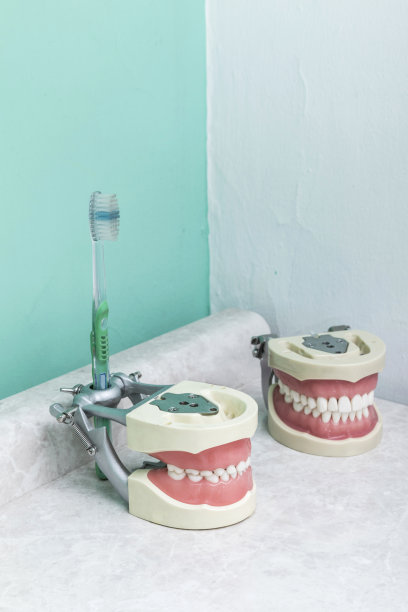Summary: This article explores periodontal disease, a prevalent yet often overlooked health issue that significantly affects oral health. It delves into the nature and stages of the disease, highlights its profound impact on overall well-being, and outlines effective strategies for prevention and management. Understanding the risk factors, symptoms, and treatment options is crucial for maintaining oral hygiene and preventing long-term complications. A proactive approach, including regular dental check-ups and personal oral hygiene practices, plays a vital role in combating this serious condition. Ultimately, strengthening our awareness of periodontal disease equips us with the tools necessary to promote oral health and prevent systemic health issues.
1. Understanding Periodontal Disease Basics

Periodontal disease, commonly known as gum disease, encompasses a range of inflammatory conditions affecting the tissues surrounding the teeth. It primarily stems from plaque build-up, which leads to gum inflammation, and, when unchecked, can result in periodontitis—an advanced stage characterized by the loss of supporting tooth structure. Understanding its progression is essential for effective management.
The disease typically begins with gingivitis, marked by symptoms such as redness, swelling, and bleeding gums. At this stage, the condition is reversible with proper oral care and professional treatment. However, if left untreated, it can advance to periodontitis, resulting in irreversible damage to gums and bone structures.
A key component in recognizing periodontal disease is the identification of risk factors. Factors like smoking, poor oral hygiene, certain medical conditions, and genetic predispositions elevate ones chances of developing this condition. Awareness of these factors can assist individuals in taking proactive measures to maintain their gum health.
2. Impact on Overall Oral Health
The ramifications of periodontal disease extend beyond the mouth, significantly affecting an individuals overall health. Research has established links between gum disease and serious health issues, including cardiovascular disease, diabetes, and respiratory conditions. The inflammatory responses triggered by periodontal disease can exacerbate systemic conditions, creating a cycle of health complications.
Additionally, untreated periodontal disease can lead to tooth loss, which not only affects appearance but also alters bite and increases the risk of further oral health issues. Those who suffer from tooth loss might experience complications such as jawbone loss, making dental rehabilitation difficult and costly.
Moreover, individuals with periodontal disease may experience a negative impact on their quality of life, facing challenges related to eating, speaking, and social interactions. The associated discomfort and aesthetic concerns can lead to lowered self-esteem and increased anxiety, highlighting the significance of addressing this health issue promptly.
3. Prevention Through Oral Hygiene Practices
Preventing periodontal disease begins with establishing good oral hygiene practices. Regular brushing and flossing are essential in removing plaque that can lead to gum inflammation. Brushing twice a day with fluoride toothpaste and daily flossing should be central to any prevention strategy.
In addition to routine home care, the importance of regular dental visits cannot be overstated. Dental professionals can provide thorough cleanings, identify early signs of gum disease, and offer personalized advice on oral hygiene techniques. Timely intervention can significantly decrease the risk of disease progression.
Furthermore, lifestyle modifications play a crucial role in prevention. Quitting smoking, adopting a balanced diet, and managing stress contribute to better oral health. For individuals at higher risk, these adjustments can provide considerable protective benefits against periodontal disease.
4. Management and Treatment Options
The management of periodontal disease involves a combination of professional treatments and personal care strategies tailored to the severity of the condition. For mild cases, professional cleanings and improved home care may suffice to restore gum health. Incorporating antibacterial mouth rinses can also help manage symptoms.
In more advanced cases, scaling and root planing—deep cleaning procedures performed by dental professionals—are often necessary. These treatments remove tartar and bacteria from the tooth surfaces and below the gumline, promoting healing and reducing inflammation.
For individuals with severe periodontitis, surgical interventions may be required to restore periodontal health. Options such as flap surgery or bone grafting seek to regenerate lost tissues and stabilize the remaining tooth structure. Continuous monitoring and follow-up care are critical in sustaining the recovered periodontal health.
Summary: Understanding periodontal disease is vital for preserving oral health and preventing systemic health challenges. The knowledge of its nature, impacts, preventative measures, and treatment options equips individuals to take proactive steps in their oral care. Regular dental visits, informed lifestyle choices, and effective personal hygiene practices stand as pillars in successfully combating this condition. Embracing these strategies aids not only in maintaining healthy gums but also in promoting overall health.
This article is compiled by Vickong Dental and the content is for reference only.
Vickong Dental
Vickong Dental is a large medical group established in Hong Kong in 2008 by professors from well-known medical universities in Guangdong and Hong Kong, as well as medical doctors from key national '985' universities (including Master's supervisors and senior professors). The chain of branches brings together expert dentists with PhDs and Master's degrees from Hong Kong and Mainland China, committed to providing high-quality dental treatment.
"Vickong Dental Practices the University Motto of 'Healing and Serving Society,' with a Stable Operation for Sixteen Years. It Has Been honored with Hong Kong Enterprise Leaders's Choice,' and is a Global Trusted Implant Center for the Nobel Implant System. Recommended by Hong Kong Metro Broadcast and Guangdong Television, it Serves Customers from Over Thirty Countries and Regions, Gaining the Trust and Favor of Citizens from the Guangdong-Hong Kong-Macau Greater Bay Area and Surrounding Cities.

Thousands of customers' unanimous praise
The most recognized and highly recommended dental service by customers in the Guangdong-Hong Kong-Macau Greater Bay Area
We Ensure You Receive Detailed Care and Attention Here
Hong Kong standards, Shenzhen prices, Your Trusted English-speaking dentists

Vickong Dental Medical-Grade Instrument Disinfection Process
Vickong Dental Medical-Grade Instrument Disinfection Process

Vickong Dental Chain: A Warm and Comfortable Environment for Treatment






Appointment Hours

Q&A
Why choose Vickong Dental?
Vickong Dental practices the university motto 「Medicine to Benefit Society」, with each branch bringing together highly qualified dentists with doctoral and master’s degrees from Hong Kong and the Mainland, and has maintained seventeen years of steady operation。Recipient of 「2024 Hong Kong Enterprise Leaders Brand」, 「2025 Hong Kong Enterprise Leaders Brand」, a Nobel Biocare Global Trusted Implant Center, and a brand recommended by Metro Radio Hong Kong and Guangdong TV。
To date, we have served customers from more than thirty countries and regions,earning exceptionally high word-of-mouth recognition and trusted recommendations from residents across the Guangdong-Hong Kong-Macao Greater Bay Area and surrounding cities
We have eight major branches in Zhuhai、Shenzhen,and a consultation and service assurance center in Hong Kong,so you can book a free consultation at any time for any questions,which is very reassuring.
If I do not accept the quotation after the CT scan, will I be charged??
No! As long as the actual treatment has not started, you will not be charged any fees.
Will there be any additional charges during the treatment process?
No, there won’t be any additional charges. Before treatment begins, we will clearly explain the treatment plan and its corresponding fees. Only after the patient agrees and signs the consent form will we proceed with the dental service.
Can I pay in Hong Kong dollars?
Yes. Vickong Dental accepts payment in Hong Kong dollars. The amount will be converted based on the exchange rate of the day, and the applicable rate will be clearly communicated to you in advance.
Can I reschedule my appointment at any time?
Yes. Please contact us via **WeChat** or **WhatsApp** as early as possible, providing your original appointment time and details, along with your preferred new date and time slot for rescheduling.













